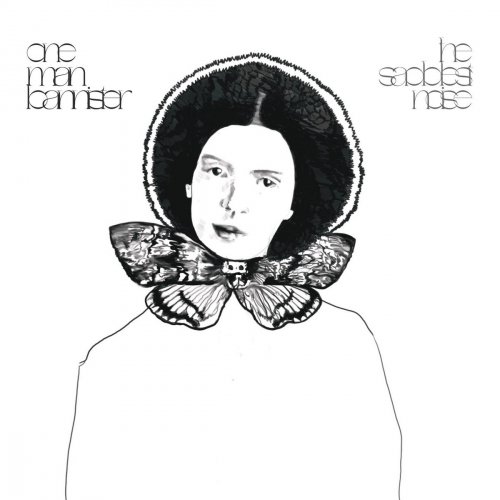Band & Musician News - New England mystic inspires New Zealand music – One Man Bannister releases 'The Saddest Noise'

29 July 2022 - 0 Comments
Poet Emily Dickinson knew all about isolation. She scarcely left her family home in Amherst, Massachusetts, preferring to write a body of poems now regarded as amongst the greatest in American literature.
“The saddest noise, the sweetest noise, the maddest noise that grows,” her poem about the dawn chorus, supplies the title for One Man Bannister’s latest album The Saddest Noise, in which he sets 14 of Dickinson's poems to music (also recorded during lockdown).
Dickinson (1830-1886) may have been considered a recluse, but the posthumous publication of her poems led to her being hailed as a feminist icon. They use short lines and often plain language to describe her tortured relationships with other people, Nature, God and mortality. She shares a Gothic fascination with death with contemporary Edgar Allen Poe.
Recent scholarship has suggested that Emily Dickinson was queer. In her 2019 interview with Wild Nights With Emily director Madeleine Olnek, Vox.com journalist Alissa Wilkinson says, "Dickinson is, in the popular imagination, a recluse, a shut-in, a woman scribbling alone in her room for her own pleasure, her work only really discovered after her death in 1886...Or was she? Scholarship lately has indicated that Dickinson had a lifelong love affair with her childhood friend Susan Gilbert." Read the full interview here.
Matthew Bannister (Sneaky Feelings, The Changing Same, One Man Bannister) thought that her poems would make ideal lyrics for songs. “I started learning poetry to help me meditate. Reciting from memory takes my mind off things. I always find it easier to write music than words, so using her poems was easy, as they’re short and song-like.”
It also seemed appropriate to ask women to perform these songs with him. So he asked his partner Alice Bulmer to play bass, and two members of the ukulele group he plays in – Tangi Habib and Melissa Hackell – to sing harmony vocals.
These are intimate, personal poems, so live they suit a fairly low-key approach. The music is in a folk-rock style, though some of the [16] tracks have blues, Latin, hip hop and jazz influences.
One Man Bannister has previously released two critically-acclaimed reworkings of albums by The Beatles, Evolver (which reached No. 14 in the NZ Albums Chart in September 2013) and Rubber Solo in 2019.
The Saddest Noise is available on CD and digitally from Powertool Records, and also digitally via Matthew Bannister's Bandcamp page.
Follow One Man Bannister on Facebook.

Most Viewed Artists
Latest Galleries
NZ Top 10 Singles
- APT.
ROSÉ And Bruno Mars - DIE WITH A SMILE
Lady Gaga And Bruno Mars - BIRDS OF A FEATHER
Billie Eilish - TASTE
Sabrina Carpenter - I LOVE YOU, I'M SORRY
Gracie Abrams - ESPRESSO
Sabrina Carpenter - SAILOR SONG
Gigi Perez - LOSE CONTROL
Teddy Swims - A BAR SONG (TIPSY)
Shaboozey - GOOD LUCK, BABE!
Chappell Roan








 Report A Problem
Report A Problem


There are currently no comments for this article. Please log in to add new comments.